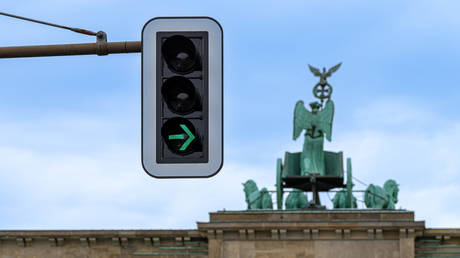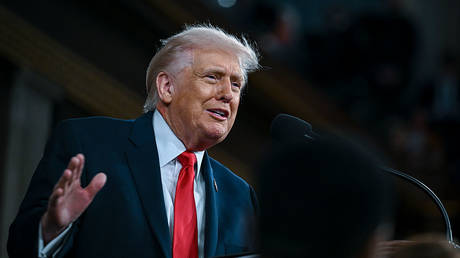
Berlin could include transport infrastructure costs in its defense budget to maintain spending above the 2% threshold
Germany is seeking to include the cost of transport infrastructure used by the military in its defense budget to maintain spending above NATO’s target, Politico reported on Wednesday, citing a senior government official.
Berlin’s allies have criticized the EU economic powerhouse for failing to honor its commitment to spend 2% of its economic output on defense each year.
Germany, the biggest economy in the EU and largest NATO member in Europe, may include the cost of buttressing roads and railways needed to carry troops and tanks across the state in an effort to hit the target set by the bloc, especially after 2027, the official told Politico.
The country’s annual defense budget allocated for NATO will also cover some expenditure from other departments, including the Foreign Office, Chancellery, and the Ministry of Finance, a Defense Ministry spokesperson said.
“The federal government is committed to NATO’s 2% target,” the spokesperson told the media outlet.
NATO’s internal rules allow spending on “the military component of mixed civilian-military activities,” but only when the military component is “specifically accounted for or estimated.”
Despite experiencing issues with its own armed forces, Germany has been the biggest backer of Ukraine in the region, providing and committing military aid of at least €28 billion ($30.3 billion) to Kiev in current and future pledges. Berlin’s ammunition supplies to the country cover advanced military equipment including Leopard 2 tanks, Marder infantry fighting vehicles, and US-made Patriot air-defense systems.
Shortly after the escalation of the Ukraine conflict in 2022, Germany set up a dedicated €100 billion ($107.2 billion) fund to upgrade the Bundeswehr. The move was expected to help the federal government to meet the annual spending threshold.
Berlin fell short of the defense spending goal in 2022 and 2023, but reportedly plans to hit the target at some point this year. Nevertheless, according to Bild, it appears set to miss the goal again next year. The current defense budget for 2025 stands at €52 billion ($56.9 billion), but these funds will be almost completely spent on operating costs such as soldiers’ wages, heating barracks, and repairing existing weapons, the report notes.
Former US President Donald Trump has suggested that the US should not defend NATO allies that fail to meet the bloc’s military spending threshold in the event of an attack. His comments elicited criticism within NATO, with German Chancellor Olaf Scholz insisting that the bloc’s “promise of protection applies unreservedly.”




